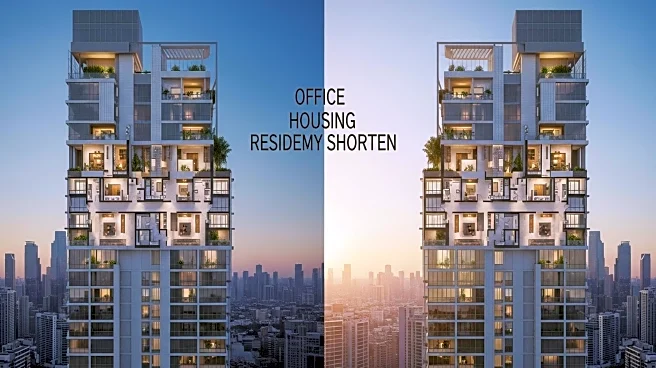What is the story about?
What's Happening?
Manhattan is experiencing a significant shift as prime office spaces are being converted into residential apartments. This trend is particularly evident in Midtown, where buildings such as the former Pfizer headquarters are being transformed into rental homes. The conversion wave is driven by the need to address the city's rental housing shortage and the obsolescence of older office buildings. Developers are taking advantage of policy support, including rezonings and state-approved tax incentives, to facilitate these conversions. The transformation is expected to bring new energy to areas traditionally dominated by office towers and entertainment venues.
Why It's Important?
The conversion of office spaces into apartments in Manhattan is crucial for addressing the city's housing crisis. By repurposing underutilized office buildings, developers can provide much-needed rental units, helping to alleviate the housing shortage. This shift also reflects broader economic changes, as the demand for office space decreases due to remote work trends. The conversions could lead to a revitalization of Midtown neighborhoods, making them more vibrant and livable. Additionally, the policy support for these projects indicates a strategic approach to urban development, balancing economic needs with community growth.
What's Next?
As the conversion trend continues, more office buildings in Manhattan are likely to be repurposed into residential spaces. This could lead to further changes in the city's real estate landscape, with potential impacts on property values and neighborhood dynamics. Stakeholders, including developers and city planners, will need to navigate the challenges of integrating new residential units into existing urban infrastructure. The success of these projects may also influence similar initiatives in other cities facing housing shortages and underutilized office spaces.
Beyond the Headlines
The conversion of office spaces into apartments raises questions about the future of urban planning and the role of policy in shaping city landscapes. It highlights the need for adaptive reuse strategies that can address both economic and social challenges. The trend also underscores the importance of creating mixed-use environments that foster community engagement and sustainable development.

















